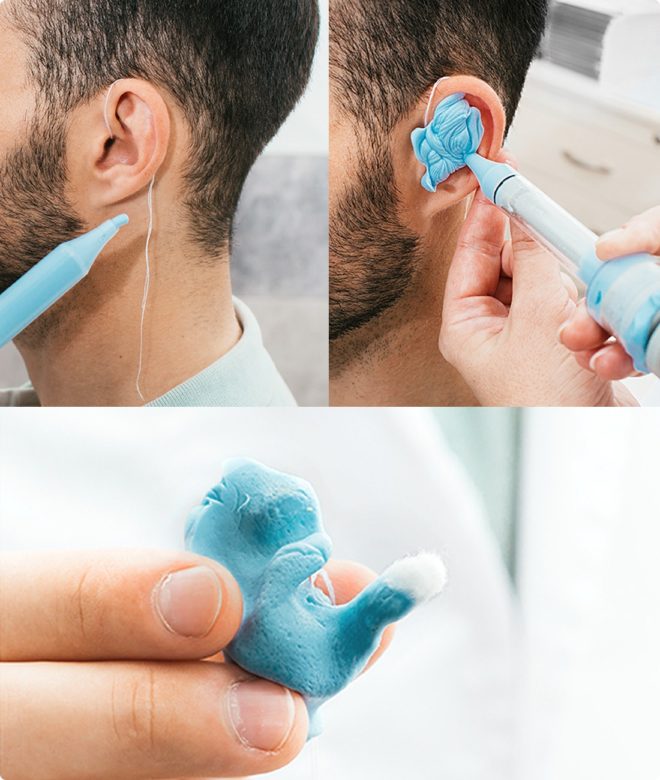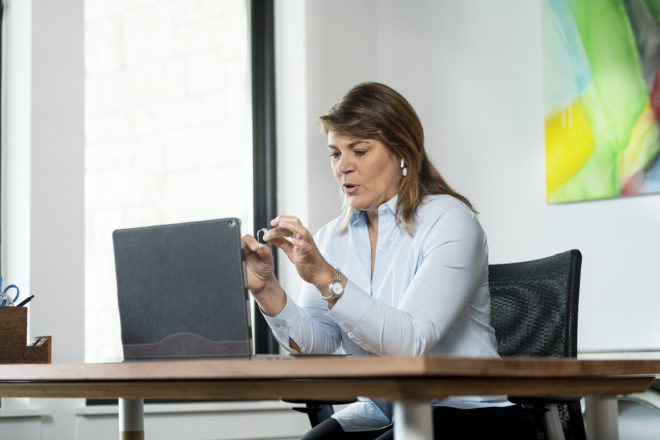Taylor Hearing Centers – Maryville
Maryville , TN 37804
Fax: 865-982-8599
Tuesday: 09:00 AM to 05:00 PM
Wednesday: 09:00 AM to 05:00 PM
Thursday: 09:00 AM to 05:00 PM
Friday: 09:00 AM to 05:00 PM
Saturday: Closed
Sunday: Closed
- In Person
- Curbside
- Virtual
Getting here:
Take US Hwy 129
Past McGhee Tyson Airport to split
Take exit to the left -Smoky Mountains/Maryville
At the 5th traffic light turn Left onto E. Broadway Ave./TN-33
Pass through traffic roundabout to continue on E. Broadway Ave.
Destination is just past roundabout on the left in the Fair Park Plaza in the same building at The United Way.

What we offer
Comprehensive & holistic care
Unlike other clinics that are limited to offering hearing aids from one brand, we offer solutions and technology from a wide range of top-tier brands, enabling our providers to find the perfect device and fit for each patient.
Treating hearing loss starts here
When you visit in person for a risk-free evaluation, you’ll receive an in-ear examination as well as a comprehensive hearing test, including Otoscopy, Tympanometry, Tone Test, Bone Conduction and Speech Discrimination. Can’t make it to the office? Meet with us curbside or virtually!
Hearing aids & treatment
Our clinicians are extremely knowledgeable on the latest technology and will work with you to find the best solution to fit your lifestyle. We offer a wide range of hearing aid brands, with styles, and technology to fit your needs and budget.
Tinnitus testing & treatment
While there is no cure for tinnitus, it can improve greatly with treatment. A full examination including diagnostic testing often pinpoints the underlying cause of the tinnitus, and various treatments are available to help with the symptoms.
Hearing protection
We specialize in hearing protection for recreation and high-noise jobs, with different levels of attenuation and protection available. From custom in-ear monitors to filtered ear plugs, we have multiple options for protection.
Insurance counseling
Navigating your insurance benefits is no easy task. That’s why we have insurance specialists on-staff who are happy to verify your benefits and take the time to explain them. Relax in the knowledge that we work with most major insurance brands — and let us handle the hard stuff.
Additional clinic details

Custom hearing protection
At Taylor Hearing Centers-Maryville, we specialize in providing custom hearing protection for hunters, musicians, and anyone whose hobby, lifestyle, or work exposes them to loud noises. We also specialize in state of the art hearing technology for those that suffer from noise-induced hearing loss.

Offering telehealth and virtual services
At Taylor Hearing Centers-Maryville, we offer telehealth services to those “snowbirds” who travel outside of our area or simply can't make it in to our clinic. Telehealth is also available to those who are not comfortable or unable to leave their home at this time.

Tinnitus Management
At Taylor Hearing Centers-Maryville, we specialize in the diagnosis and management of tinnitus (often called “ringing in the ears”). A full examination often pinpoints the underlying cause of tinnitus and helps our hearing care professionals determine the best plan of treatment, which may include special hearing aids, sound therapy, or changes in diet.
Patient Reviews
-
Ronald Moore
A life changing event Thanks RJMI -
Gerald Parsons
Blount hearing and speech has always been very professional and friendly. They certainly make you feel appreciated and are receptive to your needs and questions. It is nice to have this type of service in Blount county. -
Marshall Webster
Everyone in our office is friendly and attentive to our needs. The office is clean and neat. I am very pleased that I chose Dr Adams for my doctor. -
Beverly Belz
Excellent telephone interaction. Reviewed online hearing test and, defined all options,and answered all questions. -
Robert Bradshaw
Great service, great people . Dr. Berry is the absolutely the very best audologists I have delt with. If you or a loved one is having hearing issues of any kind call and make an appoinment, you will not reret it. -
Neal Wormsley
Great staff! My mother was a patient and I am following in her footsteps. Highly recommend! -
Lawrence Sexton
I have been going to Blount Hearing for several years and always feel that I receive excellent care. Everyone is professional and friendly. I do not feel like I’m just a name but a real person that needs help so I can improve my life by hearing better. Thank you for being there to give me that help. -
Geri Payne
I was very pleased with the friendliness and professionalism of Blount Hearing and Speech. The doctors and the staff were very helpful and informative. I would reccomend BH&S to a anyone seeking information about hearing issues. I learned a lot and feel confident they will be there in the future to help me through this process.
Meet the team

Natalie McAmis

James Martin Jr.

Skylyn Stewart
Frequently Asked Questions
What changes have been made since Scallan Hearing changed to Taylor Hearing Centers?
You will notice a little bit of a facelift! In both our Seigen and Goodwood offices you will experience the same great service with updated equipment and technology options as well as curbside service for our convenience.
With the clinic name change, what can I expect?
Scallan Hearing has been a high-quality family-owned Audiology practice in Baton Rouge for over twenty years. Joining with the Taylor Hearing Centers team of practices will not only continue that high quality of care, it will enable even greater service model and technology options to fit your lifestyle needs. In addition, we are able to be in-network with most major health insurance plans to make devices and solutions more affordable to you.
Where exactly is the Seigen office located (in the complex?)
We are located near the main library and there is ample parking with easy access to our clinic.